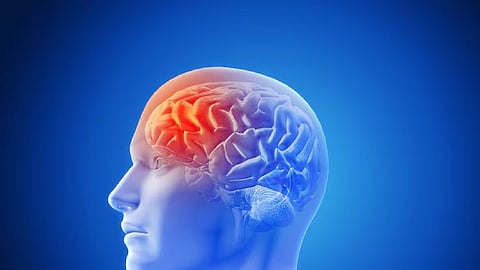

Suffering a stroke is an indescribably painful and difficult experience. But if you are in the hands of experienced doctors who administer effective and modern treatments, you will be back on your feet in no time. With this in mind, HCAH, a first-of-its-kind rehabilitation centre in Hyderabad, is ready to provide a dedicated Physical Medicine and Rehabilitation (PMR) team for stroke recovery. They conducted a session to explain what they do in the city, after which Dr Gaurav Thukral, co-founder and COO of HCAH, and Dr Aastik Bhatt, a leading specialist in neuro rehabilitation and physical medicine at HCAH, decoded it all for CE.
Dr Gaurav said, “Hyderabad is known for its rehabilitation hospitals, with 25 to 30 such hospitals in the city. But they are not properly equipped. What we are doing is strengthening our forces by getting doctors who are trained to aid in recovery and rehabilitation. These doctors, called physical medicine and rehab specialists, are not therapists but are doctors who have done their MD.”
He added that these doctors are trained to treat patients with strokes, spinal injuries, traumatic brain injuries, and head injuries. The doctor guides the team on which part of the body needs which type of therapy, such as speech therapy for speech-related issues, physiotherapy for strengthening the limbs, and cognitive therapy for rewiring the brain.
“We use AI to predict and facilitate recovery. Unlike regular physiotherapy sessions, these interactive robotics give patients confidence in their recovery. They also stimulate the brain, leading to a speedier recovery,” he explained, adding that there are three or four subsets of patients who will use this. The first group is stroke patients, the second is head injury patients, the third is spinal injury patients, and the fourth includes those with painful conditions such as frozen shoulder, lower back pain, and cervical pain.
Dr Gaurav pointed out that they have machines such as Rapid, Exo-Skeleton, and Balance Lab. “Usually, hospitals which have high-end doctors and equipment also offer costlier treatments. However, it is the opposite at HCAH because patients stay for fewer days at the centre, reducing expenses. These doctors and machines are also available on an OPD basis, allowing patients to avoid room rental costs,” he stated.
Elaborating on how this rehab helps stroke patients, he said, “Nobody predicts a stroke or a road accident, but when it happens, we find ourselves trapped in our own bodies, confined to a bed, longing to walk again and return to our jobs. The two main goals are regaining independence and reducing medical expenses, both of which are possible here.”
Regarding whether there would be complete recovery or any side effects, he noted, “What we want is complete recovery, but that is only possible if you come to the recovery centre as soon as possible. After a stroke, there is what we call the ‘golden period’ — the sooner you arrive, the sooner your brain starts rewiring and sending signals to the muscles that need to be activated. This process is combined with medication, equipment, and medical supervision. However, if patients go home and return after six months, the golden period is already over, making complete recovery much more difficult.”
Dr Aastik Bhatt stressed the need to expand rehabilitation services, explaining, “Timely rehabilitation is crucial for stroke recovery, yet many centres remain inaccessible or unaffordable. At HCAH, we have built a specialised PMR team, integrating AI-powered rehabilitation tools and robotic-assisted therapy to deliver precise, customised treatment. This ensures that every stroke patient receives holistic, multidisciplinary care tailored to their recovery needs.”